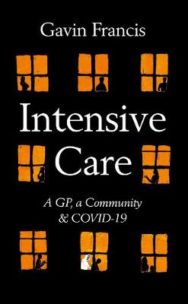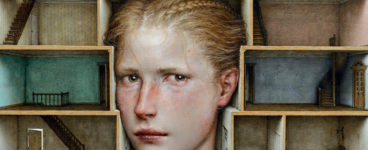‘Covid was transforming, reorientating society in ways both good and bad, as if all the old hierarchies were being pushed aside and new possibilities were emerging.’
When Gavin Francis isn’t writing his fantastic books, his day job sees him work as GP in a surgery in Edinburgh. His latest book, Intensive Care, shares his experience of the COVID year of 2020, and though often tough reading is a hopeful and necessary read. Here, we share an extract where Gavin talks to Rankin Barr, and his work with the homeless during the pandemic.
Extract taken from Intensive Care: A GP, a Community and COVID-19
By Gavin Francis
Published by Profile Books
Listening to the story of Barr’s weeks in the hotel it was clear that GPs, district nurses and carers didn’t have a monopoly on intensive care in the community – that the work he and his colleagues were putting in had been transformative in the good it had done, and was continuing to do. But at the same time I wondered how sustainable the model was – if after only two days the hotels had filled up. But of the eighty people taken in over those first two days, Barr told me, forty-five had already been moved on to more permanent accommodation, and new homeless residents had come in to fill the vacated places. ‘Lots of those presenting now are not your traditional rough sleepers. They’re coming from broken relationships, and with lockdown they can’t go to family, they can’t go to B&Bs.’
Around half the rough sleepers in the city are originally from other EU countries, and at imminent risk of losing their right to be in the UK due to Brexit. ‘Half of all our residents are classified as “no recourse to public funds” – they can’t get benefits and aren’t eligible for housing. They’re not registered as UK citizens.’ The Streetwork team had been working with an immigration expert to clarify each resident’s legal status, and help those stranded without papers and who wanted to go home to do so. Fourteen of the eighty current residents were waiting for a decision by the Home Office. We talked about some economists’ dark predictions for the autumn, of the economy going into free fall and of the wave of destitution that would result. Barr had access to a discretionary government fund for ‘innovative and creative’ solutions to rough sleeping, part of which could be used to repatriate people who needed to get home. ‘I’ve got nine people from Romania who are just waiting for the airlines to open again,’ he said.*
Meanwhile, a vaccination programme had just commenced at the hotel. I said I had heard how difficult it was to implement effective immunisation in such a fluid population. Barr nodded. ‘Public health have been trying for years.’ It was amazing to see how quickly the challenges of caring for rough sleepers had been overcome in the city, when the political will and funding was there. Impressive, but at the same time sad, given how simple the solution turned out to be. Covid was transforming, reorientating society in ways both good and bad, as if all the old hierarchies were being pushed aside and new possibilities were emerging.
I asked Barr how long he thought he could keep going. ‘We’ve funding for six weeks more at least, and I’ve had assurances that they’ll give me at least a month’s notice – a month to find other solutions if the money is going to dry up.’ But he was optimistic about the future. ‘I sit on a committee of all the housing and homeless charities in Scotland, and Kevin Stewart [Scotland’s Minister for Local Government, Housing and Planning] sits in on it. All the years I’ve been working in housing, we’ve never had that before, a cabinet minister sitting in on our meetings.’
We were back at the main door. I had a clinic to get back to, and Barr had work to do. ‘It’s the wee things that have made these weeks so extraordinary,’ he said. ‘The other day we had a birthday party for someone who has been on the streets since the age of nine. Nine! Rough sleeping or in squats since she was a wee girl.’ His face shone. ‘You should have seen her face. She’d never had a birthday party before.’
* By late August Barr had arranged the repatriation of thirty-six of the hotel’s residents.
Intensive Care: A GP, a Community and COVID-19 by Gavin Francis is published by Profile Books, priced £16.99
ALSO IN THIS ISSUE

 Ka, the Ring and the Raven
Ka, the Ring and the Raven
‘Ka was struck by the elegance of the choughs’ flight, and slightly embarrassed by the efforts he ne …














